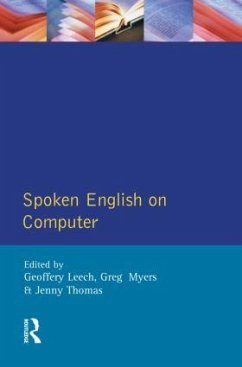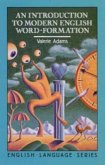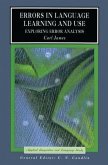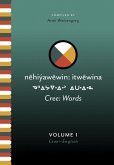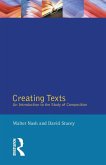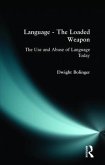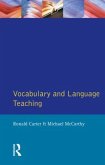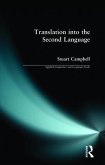Spoken English on Computer
Transcription, Mark-Up and Application
Herausgeber: Leech, Geoffrey; Thomas, Jenny; Myers, Greg
Spoken English on Computer
Transcription, Mark-Up and Application
Herausgeber: Leech, Geoffrey; Thomas, Jenny; Myers, Greg
- Broschiertes Buch
- Merkliste
- Auf die Merkliste
- Bewerten Bewerten
- Teilen
- Produkt teilen
- Produkterinnerung
- Produkterinnerung
First Published in 1995. Routledge is an imprint of Taylor & Francis, an informa company.
Andere Kunden interessierten sich auch für
![An Introduction to Modern English Word-Formation An Introduction to Modern English Word-Formation]() Valerie AdamsAn Introduction to Modern English Word-Formation72,99 €
Valerie AdamsAn Introduction to Modern English Word-Formation72,99 €![Errors in Language Learning and Use Errors in Language Learning and Use]() Carl JamesErrors in Language Learning and Use97,99 €
Carl JamesErrors in Language Learning and Use97,99 €![Cree: Words Cree: Words]() Cree: Words77,99 €
Cree: Words77,99 €![Creating Texts Creating Texts]() Walter NashCreating Texts70,99 €
Walter NashCreating Texts70,99 €![Language - The Loaded Weapon Language - The Loaded Weapon]() Dwight BolingerLanguage - The Loaded Weapon120,99 €
Dwight BolingerLanguage - The Loaded Weapon120,99 €![Vocabulary and Language Teaching Vocabulary and Language Teaching]() Ronald CarterVocabulary and Language Teaching75,99 €
Ronald CarterVocabulary and Language Teaching75,99 €![Translation into the Second Language Translation into the Second Language]() Stuart CampbellTranslation into the Second Language145,99 €
Stuart CampbellTranslation into the Second Language145,99 €-
-
-
First Published in 1995. Routledge is an imprint of Taylor & Francis, an informa company.
Hinweis: Dieser Artikel kann nur an eine deutsche Lieferadresse ausgeliefert werden.
Hinweis: Dieser Artikel kann nur an eine deutsche Lieferadresse ausgeliefert werden.
Produktdetails
- Produktdetails
- Verlag: Taylor & Francis
- Seitenzahl: 272
- Erscheinungstermin: 18. Mai 1995
- Englisch
- Abmessung: 234mm x 156mm x 15mm
- Gewicht: 386g
- ISBN-13: 9780582250215
- ISBN-10: 0582250218
- Artikelnr.: 39215842
- Herstellerkennzeichnung
- Libri GmbH
- Europaallee 1
- 36244 Bad Hersfeld
- gpsr@libri.de
- Verlag: Taylor & Francis
- Seitenzahl: 272
- Erscheinungstermin: 18. Mai 1995
- Englisch
- Abmessung: 234mm x 156mm x 15mm
- Gewicht: 386g
- ISBN-13: 9780582250215
- ISBN-10: 0582250218
- Artikelnr.: 39215842
- Herstellerkennzeichnung
- Libri GmbH
- Europaallee 1
- 36244 Bad Hersfeld
- gpsr@libri.de
Jenny Thomas, Geoffrey Leech, Greg Myers
List of Acronyms
List of Contributors
Editor's General Introduction
Part A: Issues and Practices
Introduction
1. Principles and alternative systems in the transcription, coding and
mark-up of spoken discourse
2. Theoretical issues: transcribing the untranscribable
3. Adequacy, user-friendliness, and practicality in transcribing
4. Whole-text analysis in computerised spoken discourse
5. The text encoding initiative: an overview
6. The approach of the Text Encoding Initiative to the encoding of spoken
discourse
7. From theory to practice
Part B: Applications and More Specialised Uses
Introduction
8. Transcription, segmentation and analysis: corpora from the
language-impaired
9. Corpora of disordered language
10. Discourse considerations in transcription and analysis
11. Code switching: a problem for transcription and text encoding
12. Linking prosodic transcription to the time dimension
13. Grammar tagging of the spoken part of the British National Corpus: a
progress report
14. Publishing a spoken and written corpus on CD ROM: the HCRC Map Task
Experience
Part C: Samples and Systems of Transcription
Introduction
15. The survey of English usage and the London-Lund Corpus:computerizing
manual prosodic transcription. 16. The COBUILDSpoken Corpus: transcription
conventions
17. Recycling an old corpus: converting the SEC into the MARSEC database
18. The International Corpus of English: mark up for spoken language
19. The BNC Spoken Corpus
20. The Bergen Corpus of London Teenager Language (COLT)
Bibliography references
Subject index
Index of Person's names.
List of Contributors
Editor's General Introduction
Part A: Issues and Practices
Introduction
1. Principles and alternative systems in the transcription, coding and
mark-up of spoken discourse
2. Theoretical issues: transcribing the untranscribable
3. Adequacy, user-friendliness, and practicality in transcribing
4. Whole-text analysis in computerised spoken discourse
5. The text encoding initiative: an overview
6. The approach of the Text Encoding Initiative to the encoding of spoken
discourse
7. From theory to practice
Part B: Applications and More Specialised Uses
Introduction
8. Transcription, segmentation and analysis: corpora from the
language-impaired
9. Corpora of disordered language
10. Discourse considerations in transcription and analysis
11. Code switching: a problem for transcription and text encoding
12. Linking prosodic transcription to the time dimension
13. Grammar tagging of the spoken part of the British National Corpus: a
progress report
14. Publishing a spoken and written corpus on CD ROM: the HCRC Map Task
Experience
Part C: Samples and Systems of Transcription
Introduction
15. The survey of English usage and the London-Lund Corpus:computerizing
manual prosodic transcription. 16. The COBUILDSpoken Corpus: transcription
conventions
17. Recycling an old corpus: converting the SEC into the MARSEC database
18. The International Corpus of English: mark up for spoken language
19. The BNC Spoken Corpus
20. The Bergen Corpus of London Teenager Language (COLT)
Bibliography references
Subject index
Index of Person's names.
List of Acronyms
List of Contributors
Editor's General Introduction
Part A: Issues and Practices
Introduction
1. Principles and alternative systems in the transcription, coding and
mark-up of spoken discourse
2. Theoretical issues: transcribing the untranscribable
3. Adequacy, user-friendliness, and practicality in transcribing
4. Whole-text analysis in computerised spoken discourse
5. The text encoding initiative: an overview
6. The approach of the Text Encoding Initiative to the encoding of spoken
discourse
7. From theory to practice
Part B: Applications and More Specialised Uses
Introduction
8. Transcription, segmentation and analysis: corpora from the
language-impaired
9. Corpora of disordered language
10. Discourse considerations in transcription and analysis
11. Code switching: a problem for transcription and text encoding
12. Linking prosodic transcription to the time dimension
13. Grammar tagging of the spoken part of the British National Corpus: a
progress report
14. Publishing a spoken and written corpus on CD ROM: the HCRC Map Task
Experience
Part C: Samples and Systems of Transcription
Introduction
15. The survey of English usage and the London-Lund Corpus:computerizing
manual prosodic transcription. 16. The COBUILDSpoken Corpus: transcription
conventions
17. Recycling an old corpus: converting the SEC into the MARSEC database
18. The International Corpus of English: mark up for spoken language
19. The BNC Spoken Corpus
20. The Bergen Corpus of London Teenager Language (COLT)
Bibliography references
Subject index
Index of Person's names.
List of Contributors
Editor's General Introduction
Part A: Issues and Practices
Introduction
1. Principles and alternative systems in the transcription, coding and
mark-up of spoken discourse
2. Theoretical issues: transcribing the untranscribable
3. Adequacy, user-friendliness, and practicality in transcribing
4. Whole-text analysis in computerised spoken discourse
5. The text encoding initiative: an overview
6. The approach of the Text Encoding Initiative to the encoding of spoken
discourse
7. From theory to practice
Part B: Applications and More Specialised Uses
Introduction
8. Transcription, segmentation and analysis: corpora from the
language-impaired
9. Corpora of disordered language
10. Discourse considerations in transcription and analysis
11. Code switching: a problem for transcription and text encoding
12. Linking prosodic transcription to the time dimension
13. Grammar tagging of the spoken part of the British National Corpus: a
progress report
14. Publishing a spoken and written corpus on CD ROM: the HCRC Map Task
Experience
Part C: Samples and Systems of Transcription
Introduction
15. The survey of English usage and the London-Lund Corpus:computerizing
manual prosodic transcription. 16. The COBUILDSpoken Corpus: transcription
conventions
17. Recycling an old corpus: converting the SEC into the MARSEC database
18. The International Corpus of English: mark up for spoken language
19. The BNC Spoken Corpus
20. The Bergen Corpus of London Teenager Language (COLT)
Bibliography references
Subject index
Index of Person's names.

